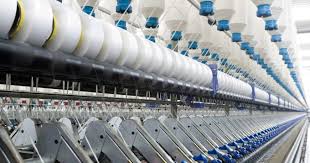KARACHI: All Pakistan Textile Mills Association (APTMA) Senior Vice Chairman Zahid Mazhar, on Monday, urged Prime Minister Shahid Khaqan Abbasi to implement Rs 180 billion Textile Package announced earlier this year, adding that the high input costs are hitting the viability of the textile industry.
He said, “The notification for the release of refund under Duty Drawback of Taxes Order from July 01, 2017 to June 30, 2018, be issued without the condition of growth in exports of 10 per cent in 2017-18 as compared to 2016-17.” This must be treated as the first step for the revival of the closed capacity, creation of jobs and attraction of investments in the country.
Mazhar said that “the delay in the implementation of the textile package is rapidly eroding the exports of textile sector.” He has said that the high input costs are resulting in the closure of a large number of textile mills engaged in the manufacturing of yarn and fabrics.
He said that both the spinning and weaving sectors are the backbone of the textile value chain, and have faced the brunt of the high costs of doing business, which has made them unviable throughout the country.
The production of yarn and fabric is substantially more than the local consumption and their exports need to be encouraged. He said that if this trend will continue for a longer period there will be a large scale closure of spinning mills resulting in a drastic increase in unemployment as well as a reduction in consumption of locally produced cotton.
He also demanded the government to encourage investment in spinning and weaving sectors in such a manner that maximum cotton be converted into yarn and downstream products as it will not only facilitate the farmers and the spinning industry but would also help the whole textile chain and the national economy in general.
He said that a few years back the textile sector had achieved production of 15 million bales of cotton, now we must make arrangements to achieve a target of 15 million bales of cotton production or even increase it further to 20 million bales.
He said that the textile industry has been hit hard due to the high cost of energy, both gas and electricity, which resulted in making Pakistan’s exports uncompetitive in the global market, adding that the cost of production of both gas and electricity is about 30 per cent higher than Bangladesh, India and Vietnam.
The government should remove the levy of Gas Infrastructure Development Cess (GIDC) on gas. He further demanded that the government should provide gas at the regionally competitive rate of Rs 400/MMBTU as was earlier announced by the ECC in November 2016.
He said that the trade deficit for the last fiscal year was recorded at an all-time high at US$ 32.58 billion, imports at $53 billion while exports were recorded at merely $20.45 billion, the lowest after 2009-10.
He pointed out that the current situation is fast becoming out of control, which is quite evident from the free fall of exports over the last two and half years. While our exports are falling, the textile exports of other countries like Bangladesh, India, and Vietnam are rapidly increasing every year.
He said that country’s textile industry is capable enough to bring the economy out of the current disastrous condition. He hoped that the prime minister and his cabinet would take immediate steps to stop the drastic decline in exports during last four years, as any further negligence or delay will take the economy to a point of no return.




